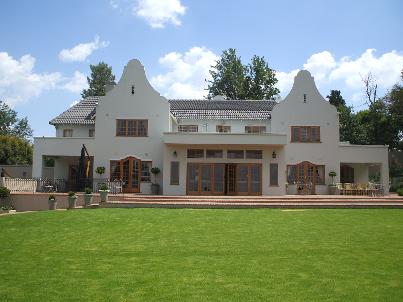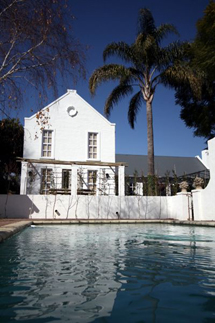Considering Buying/Renovating a Heritage Home?
Pros and Cons by Claire Cardwell
Some people feel that Heritage-listed properties are fascinating windows into the past and that their owners are lucky. Other people say that a Heritage listing is a real headache with development restrictions and price depreciation.
There are risks involved with buying a Heritage home, but in my opinion the benefits far out weigh the cons.


According to Graham Viney, award-winning designer, author and an expert when it comes to historic property in South Africa , the preservation of our country’s architectural treasures is frequently due to the collective clout of self-appointed local ‘watch dogs’, like those established in St James, Kalk Bay and Muizenberg.
However, Viney points out that there are grey areas when it comes to ‘defining history’: ‘There are some who view so-called colonial architecture as testament to a repressive era and therefore unworthy of safeguarding. Really, though, these buildings are monuments to craftsmen who have gone before and should be treasured.’
“Whether bought fully-renovated or still in need of some love and care, the romance and emotional pull of an older home holds enormous appeal for many,” says Richard Day, Pam Golding Properties National General Manager.


Pros : -
1. Heritage properties frequentely attract higher resale values because they and often the surrounding areas are protected. People may assume this means a property can’t be changed at all. In fact work is encouraged to ensure a house is properly maintained and modernised; you just need to know what aspects of the original building are especially important in maintaining its character.
2. If you have a heritage home you may be able to apply for grants or loans to help fund it's upkeep or maintenence. For example the City of Johannesburg Department of Arts, Culture and Heritage, offers a 20% rebate for properties declared heritage sites.
3. It is unlikely that the area surrounding your house will be re-zoned or developed.
4. If the property is well looked after it will retain it's appeal and will only grow in value with age.


Cons : -
1. There are more restrictions around the development of a heritage property, including how they can be renovated, the design and what building materials can be used.
2. The cost of renovating a heritage property can also be higher. In addition you will have to look out for surprise costs for remedial electrical work or replacing roof trusses etc.
3. Approvals for renovation or development will take longer. Not only do you need to deal with your local council but heritage bodies will also need to approve your plans. People wanting to buy and/or renovate a Heritage property should work with Heritage authorities and Council from the start.
4. Complete demolition of a property isn’t usually allowed.
5. Home insurance may be harder to obtain so it's best to do some research before making an offer.
6. Heritage listed properties are old – make sure you organise thorough building and pest inspections.





“Many historic homes were built in prime central locations, or close to attractive natural features such as rivers and mountain backdrops. They may still occupy significantly larger erfs and have more and larger rooms than the average modern home. They also tend to be well-built structures, with thick walls, wooden floors and old-school attention to detail and craftsmanship,” says Richard Day.
“It is often such features, and if they form part of a well-maintained, fully-renovated historic property, which may command a premium price, more than any intrinsic heritage value or significance.”
Day says an ill-maintained historic property, or one requiring insensitive renovations, will often fetch a lower price than an equivalent modern home, given the cost of restoring it to its former glory. “Buyers who dream of renovating old homes should also be aware that they cannot just move in and start building,” says Day.
“Before taking on an historical property, make sure that it is generally suitable for your requirements in terms of size and plan. Sometimes people buy buildings because of their historical charm, only to completely alter them or to remove all patina or sense of past history,” says Day.
“Find a house you like, and consider its pros and cons objectively, as well as emotionally. The more logically you approach buying the house, the more you're going to love living in it.”
“Before taking on an historical property, make sure that it is generally suitable for your requirements in terms of size and plan. Sometimes people buy buildings because of their historical charm, only to completely alter them or to remove all patina or sense of past history,” says Day.
“Find a house you like, and consider its pros and cons objectively, as well as emotionally. The more logically you approach buying the house, the more you're going to love living in it.”
